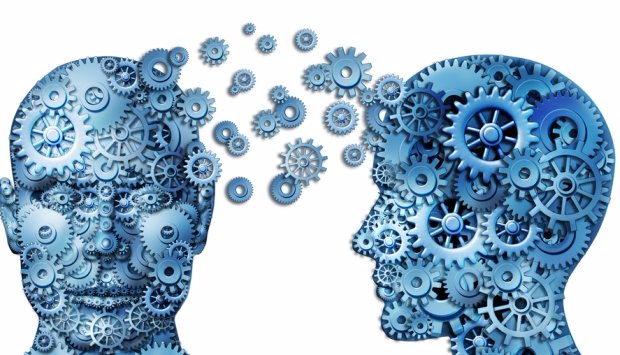
- August 4, 2022
- Anthropology, Essay, Philosophy, Philosopy of Science, Research Methodology, Sciences, Technology, Technology Transfer
Can we transfer science from one country to another or from one culture to another culture? Is a scientific fact different in the United States and China? Who owns science? Are we confusing science with technology?
Science does not come into existence by spontaneous generation. Scientific knowledge is not an only inheritance from the past but also the intellectual activity of the future, the only dimension of time that belongs to mankind. To know scientific facts is part of the teaching-learning process, but generating knowledge is an integral part of the future of science. But science is not created; it is discovered. The scientific fact is there, alongside mankind, not only after it is revealed. The laws of science have existed since the beginning of time; human being has merely verified their existence.
Laws of nature are not necessarily linear. They can be part of instability, fluctuations, and chaos. Indeed, order and chaos can be the consequence of natural laws that are not linear. Classical mechanics, quantum mechanics or relativity have been related to science’s ultimate goal which is reaching certainty. But new developments on complexity can also relate science to uncertainty in which laws of nature no longer describe certitudes but possibilities (Prigogine and Stengers, 1988, Prigogine, 1996). The applications originating from these scientific principles –linear or non-linear– are the heritage of human beings in alliance with their environment. Thus, while science is an accumulation of possible facts regardless of  mankind, technology is the application of scientific principles to a specific environment or culture.
mankind, technology is the application of scientific principles to a specific environment or culture.
Therefore, while science is not transferable from one culture to another since it is universal, not the heritage of any one culture but of mankind, technology on the other hand is an adaptation, made by human beings, of the scientific fact to the culture or the environment in which they live. Technology is not neutral. It conveys social values and relationships (Thônh Khoi, 1986). Imported technologies, therefore, need to be transferred from one type of culture to another to confirm that cultural survival is not threatened and that on the contrary, its use may help to raise the quality and standard of living.
This transference becomes even more important when the development gap between the cultures producing the technology and those importing it is very wide. The latter cultures have generally been called Third World countries, poor countries, or developing countries. For the purposes of this article, the third description is the most suitable, but we would even prefer to call them countries in transition since this conveys a strong sense of faith and hope for their sustainable integral growth. The term also embraces all the countries with unequal and moderate endogenous development, formerly classified under an ideological heading as in the case with most of the Eastern and Central European countries. As a matter of fact, a developed country is a presumptuous definition or label since no one will be ever fully developed. Life is a permanent change.
There are of course some associations in different disciplines of specific concepts. For instance, specific connotations of the term of educational technology imply a critical attitude that cannot be overlooked. In cultural circles in the importing countries, such technology has come to be associated with mechanistic theories of learning and seen as no more than a teaching aid, or else it has been censured as a mechanism ensuring dependence on more highly developed countries from a political and social standpoint.
There are justifications for such negative attitudes; some experiments have not been successful. But alongside these criticisms there is a certain uncritical acceptance of claims that technology is sufficient in itself to ensure development, bringing the educational system of developing countries up to the level of those more advanced. In fact, the situation is much more complex.
If we refer technology to the process of education, the precise meaning of educational technology should be clarified. A first definition may be found in the etymology of the word. For the Greeks, Tekne was the equivalent of art as distinct from knowing how to do something (empeiria) purely from personal experience. The technique would mean knowing how to do something over and above the level of personal experience, on the basis of accumulated collective experience, and in which the principle of efficacy is inherent in the survival and diffusion of such interpersonal knowledge or skill. When thinking analysis or study (logos) is added to technical knowledge, then we have Technology, so this would be the theory of technique. Technology, therefore, is halfway between purely speculative science and applied technical knowledge. One can go further and say that those branches of science that lead inevitably to practice or performance may now be classified as technological science, and obviously, Education comes into this category (Escotet,1992, 2000; Escotet, Aiello, Sheepshanks, 2010).
The purpose of technology is to apply scientific knowledge systematically to the solution of practical problems. Such application, however, is carried out reflectively, so that scientific and theoretical knowledge is valid so far as it solves and explains these problems. This consideration of technology as the science of action does away with the frontier between theory and praxis in a logical continuum of thinking/action and action/thinking or in a complex system. (Escotet 2017; Escotet, Aiello, Sheepshanks, 2010)
so that scientific and theoretical knowledge is valid so far as it solves and explains these problems. This consideration of technology as the science of action does away with the frontier between theory and praxis in a logical continuum of thinking/action and action/thinking or in a complex system. (Escotet 2017; Escotet, Aiello, Sheepshanks, 2010)
Technology requires a systemic, comprehensive concept of the problems it tries to solve, in such a way that the solutions will not give rise to new problems. Technology is not an end in itself since it does not progress if it is considered as a logical course of action which includes the process of analysis, the choice of the most suitable strategy, the application of relevant solutions and the evaluation of results; in other words, technology refers not to products but to processes, so its value is purely one of interrelation with social and cultural life.
We must avoid being dazzled by technological products which are simply alienating unless they are used to improve human life, whether personally or collectively, To overcome such alienation, available resources must be built up, and conditions created for the development of new resources to provide proper solutions adapted to each culture and society. And this is particularly necessary in the case of education where one is acting on the human being himself, unique and inimitable as an individual and forming part of a social group with its own tradition and culture.
 All over the world, there is concern about the consequences of the indiscriminate application of destructive technical products, harmful to the environment and cause of new burdens for mankind; in the case of education, there is, in addition, anxiety over the ideological analysis we have already mentioned of the type of world and the type of learning that could be the result of this lack of foresight.
All over the world, there is concern about the consequences of the indiscriminate application of destructive technical products, harmful to the environment and cause of new burdens for mankind; in the case of education, there is, in addition, anxiety over the ideological analysis we have already mentioned of the type of world and the type of learning that could be the result of this lack of foresight.
The purchase of aircraft, television sets, satellites, computers, mobile devices or schools might give the impression that countries are importing technology. When one begins to understand that technology is, in reality, a capacity to attain one’s ends with one’s own resources, then we might say that the possibility exists of a transfer of technology. In summary, it is impossible to transfer sciences. Science is an indivisible part of the universe. Its essence does not belong to anybody. Who owns the gravity principle? However, technology not only can be transferred but it should be mandatory to do it from one culture to another in order to preserve the environment, and most importantly, the sustainability of cultures, the cultural ecology. Education plays a major role in achieving this goal.
References
Escotet, M.A. (2017). Analisis Multivariado en Ciencias Humanas. Miami, FL: TransCampus.
Escotet, M.A. Martin, A. and Sheepshanks, V. (2010) La Actividad científica en la universidad. Buenos Aires: Cátedra UNESCO-UNU y U. Palermo.
Escotet, M.A. (2000) Cultural and Social Foundations of Education. Needham Heights, Mass: Simon & Schuster.
Escotet, M.A.(1992) Aprender para el futuro. Madrid: Alianza Editorial.
Prigogine, Ilya (1996) The End of Certitudes. (A translation from La fin des certitudes. Paris: Odile Jacob).
Prigogine, I. and Stengers, I. (1988) Entre le temps et l’Eternité. Paris: Librairie Arth?me Fayard.
Thônh Khoi, Le. (1986). Science and Technology: Options for Endogenous Development. In Cao Tri, Huynh et al. Strategies for Endogenous Development. Paris: UNESCO, 19-75.
©2022 Miguel Angel Escotet. All rights reserved. Permission to reprint with appropriate citing.